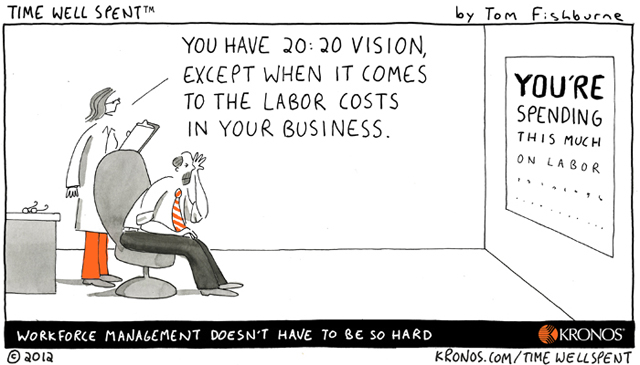Here’s an HR dilemma. See if you can figure out the correct response.
Under your organization’s health plan, your company gets better rates if more of your workers are non-smokers. How do you ensure that employees who say they don’t smoke — and get nearly a $500 per year annual discount as a result — really are non-smokers?
If you’re managing public workers in Maricopa County, Arizona, you make the workers submit to a controversial saliva test. And you’re not surprised when you find that, lo and behold, a lot of those non-smokers getting discounts have been fibbing about their tobacco use all along.
Forcing workers to be tested for nicotine
According to a story in the Arizona Republic newspaper in Phoenix, “Hundreds of Maricopa County employees caught fibbing to their health insurer about their smoking or who refused nicotine testing will now pay higher health-insurance premiums under a new county policy. As a result, the county will collect an additional $327,360 in health-insurance premiums, with the money going into an employee-benefits fund.”
No one in management (especially in HR) likes to play benefits cop, but in a world caught up in Obamacare, federal mandates, and ever-rising health care costs, this may be a sign of the times.
The controversial mouth swabs began a year ago, when all county workers were told to submit to saliva testing for nicotine or lose an annual insurance-premium discount of $480 offered to those who do not use tobacco products.
The requirement spurred an outcry among some who said it was an invasion of privacy and would allow the county to collect sensitive health information.
Of the 11,089 employees covered by health benefits, 682 declined to take the saliva test or took the test and failed. In either case, they lost the premium reduction.
Test results raised the proportion of employees presumed to be smokers from 11.6 percent to 17.8 percent, according to county data. That is closer to federal-government rates showing that about 18 percent of federal employees smoke, according to the U.S. Centers for Disease Control and Prevention.
Prior to the swabs, employees self-reported on tobacco use by filling out paperwork declaring they did not use. But the number of employees reporting themselves as smokers was too low compared with national statistics, said Chris Bradley, director of the county’s Department of Business Strategies and Health Care Programs.”
Each smoker costs an additional $3,400 per year
Why should managers and HR pros care about all of this? Well, besides the lesson it should teach all of us about the validity of self-reported data we get from those in our employ, it’s also highlights the cost burden that tobacco users put on your company health plan. That’s because at the core of all of this flap in Maricopa County is the fact that the CDC estimates “that each employee who uses tobacco costs an employer an additional $3,400 per year.”
That’s a pretty big chunk of change for organizations to shoulder, and it shows why more and more companies are looking for ways to help encourage their employees to kick the smoking habit — even if it means, as it does in Arizona, that HR has to become the tobacco police.
But there’s more going on this week than policing non-smokers who really do smoke. Here are some HR and workplace-related items you may have missed. This is TLNT’s weekly round-up of news, trends, and insights from the world of talent management. I do it so you don’t have to.
- Do you have free speech at work? Maybe not, some attorneys say, especially if you consider that constitutionally protected freedom of speech for government workers doesn’t extend into the private-sector workplace. According to the Kansas City Star, “A private-sector employer ‘has a lot of latitude as to what’s permitted or not with respect to political speech, or pushing any view for that matter,’ advises Brian Finucane, an attorney at Fisher & Phillips in Kansas City. An employer can allow or prohibit political speech at work. An employer can allow one point of view to be aired but discipline an employee who voices a contrary opinion. An employer can fire a worker who supports a different candidate or stance. That’s certainly not ‘best practice’ in a workplace, Finucane says, but it’s important for private-sector employees to understand the limits of their free-speech rights at work.”
- Guilty of leaving before 8 pm. In hard-charging, hard-working organizations — like, say, Facebook — staying late to work is often seen as a badge of honor. And, that can be tough for mothers and others who have responsibilities at home that don’t allow them to stay late, as workplace columnist Cindy Krischer Goodman recounts in The Miami Herald. “Are you comfortable leaving your office at a reasonable hour and resigning to get the unfinished work done tomorrow? Do you worry about what others will think if you leave at 6 p.m.? Facebook COO Sheryl Sandberg is familiar with the funny, uncertain feeling that comes with checking out soon after 5:00 to be with family. Although she used to worry about what others thought of her departure time, she has finally reached a point where she can take off at 5:30 p.m. without the lingering concern of how others are perceiving her.”
- Turning a blind eye to wrongdoing. Fortune magazine makes a strong case for why finance workers need to be willing to report wrongdoing that they see — and how few seem to do so. “Employees do not report 50% of observed misconduct. And even when unethical behavior is reported, 60% of managers said they’d only divulge information to a senior executive if the impact of the case exceeded $1 million, according to a 2011 study of 500,000 employees at 150 companies … over four years, conducted by Corporate Executive Board … The improper conduct goes unreported because people “fear retaliatory action, including losing their job, failing to get promoted, failing to get a bonus,” explains Thomas Monahan, chairman and CEO of Corporate Executive Board. Many employees expect that the misconduct will be buried under the table and no action will be taken. Indeed, companies have failed to create a healthy, ethical culture where people feel “they will not be retaliated against and the company will go and do something” about the wrongdoing, Monahan suggests.”
- Kronos Time Well Spent cartoon. Kronos, the company that probably makes your organization’s time-and-attendance systems, publishes a regular Time Well Spent workplace cartoon by Tom Fishburne. Some of you enjoyed the one I posted here last week, so here’s another you may also like. I’ll post them here, from time to time, in the Weekly Wrap.

